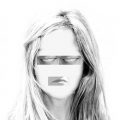When it comes to the future of bipolar disorder diagnosis, a recent study has shown that using a Magnetic Resonance Imaging or commonly known as MRI can be very effective. This is true when it comes to detecting a mental illness, including bipolar disorder or other psychotic symptoms.
Researchers were still trying to find out a way on how to maximize MRI’s benefits. This is to properly distinguish bipolar patients from a mentally normal person. They use brain scans and other analysis data.
The Future of Bipolar Disorder Diagnosis: Challenges
As mentioned earlier, one of the major challenges of this disorder, especially for doctors is the early detection and proper diagnosis. In some cases, it almost takes over 10 years before making an accurate diagnosis. This makes bipolar disorder among the top 10 disability cases in the world.
Dr. Frangou and her team of medical mental practitioners tried several tests in using MRI to scan patients who are healthy. Those who have bipolar disorder, using various computational models, the experiment was a success. It correctly identified people with bipolar disorder and normally healthy people with 73% accuracy using brain scans alone!
They replicated this experiment and the results were almost the same, which means that MRI can help in diagnosing a patient in a short period of time. If this is further evaluated and proven, along with other possible high – tech equipment, diagnosis could be easy and treatment can be given immediately to bipolar patients, which in turn can save lots of lives.
Diagnosis is currently identified only through self – reporting from patients and observation using a set of scientifically – defined symptoms, this kind of approach is also vital in terms of building relationships between the doctor and their patients, it can also be a means of support that patients need, and can also encourage practice of awareness on the part of the bipolar person. This kind of approach alongside using types of machinery like the MRI can significantly detect the condition very early on.
According to Dr. Frangou, although their research is still under evaluation, it can create a major shift in the way psychologists approached diagnosis in psychiatry.




 NRB Publishing is a small publishing house dedicated to releasing quality informational books to interested readers.
NRB Publishing is a small publishing house dedicated to releasing quality informational books to interested readers.